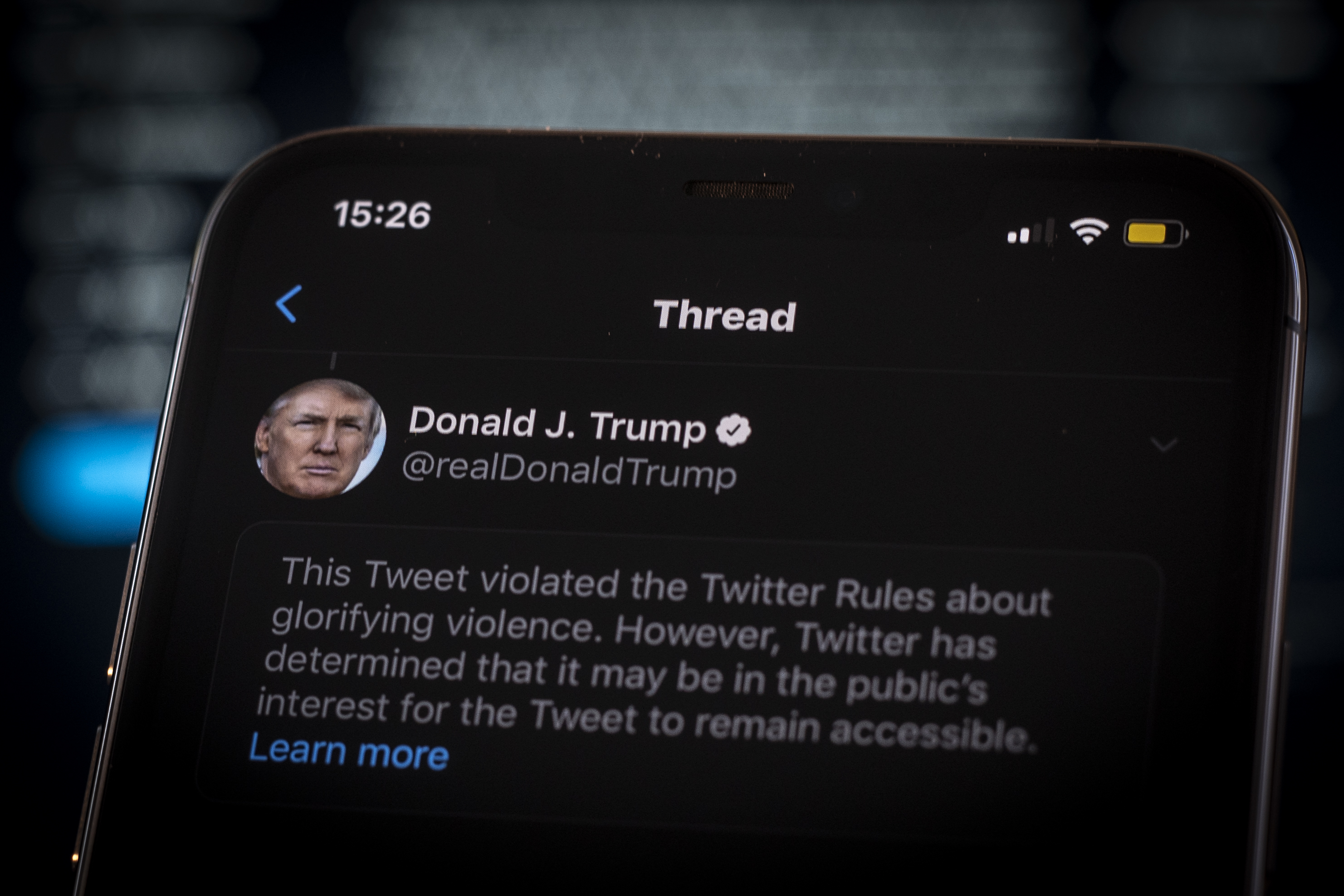
While the policy world has been awash in debate over the power of social media, Reps. Anna Eshoo (D-CA) and Jerry McNerney (D-CA) have reminded us about the effects of traditional television on our democracy. In a letter to cable, satellite and streaming outlets, the Representatives expressed concern about the misinformation and disinformation allegedly distributed by the channels those services carry.
Donald Trump wanted the Federal Communications Commission (FCC) to become the policeman of social media content. Reps. Eshoo and McNerney have suggested no such role for the federal government in cable, yet their letter to the company CEOs asking about their responsibility “in disseminating misinformation” has been attacked by the very same people who marched in lockstep with Donald Trump’s attempt to establish federal speech police for social media.
“What time does the Democrats’ book burning party start?” Republican FCC Commissioner Brendan Carr tweeted about the letter to the media companies. This is the same Commissioner Carr who wholeheartedly supported Donald Trump’s efforts to use the Federal Communications Commission (FCC) to police social media companies, including empowering that government agency to determine whether editorial decisions were made in “good faith.”
Donald Trump’s instructions to the FCC came in the form of Executive Order 13925 in which he complained social media “platforms are engaging in selective censorship.” The Executive Order was reportedly triggered by Twitter’s inclusion of a fact-check label and link to information about mail-in ballots on Trump’s May 26 tweet that mail-in ballots were “fraudulent.” The Trump administration’s formal request for FCC action cited Trump FCC Chairman Ajit Pai’s statement supporting the need to determine “how do those companies make decisions about what we see and what we don’t? And who makes those decisions?”
In contrast to the Trump initiative, the Eshoo-McNerney letter had no proposal for the policing of editorial intent. The letter expressed concern about the “spread of dangerous misinformation that enabled the insurrection of January 6 and hinders our public health response to the current pandemic” and inquired about the companies’ content policies. “Republicans feel that Social Media Platforms totally silence conservatives’ voices,” Trump complained. “We will strongly regulate, or close them down, before we can ever allow this to happen.” In contrast, the Eshoo-McNerney letter made no threat to “strongly regulate” or “close down” the media companies. Rather, it asked whether the companies “have done anything in response to the misinformation aired by these outlets.”
The Trump effort to turn the FCC into the information gendarme thankfully died with the November election. Its legacy, however, lives on. Part of the Trump legacy is a never-rescinded opinion by the FCC’s general counsel (who worked for the Chairman). The opinion found the agency could narrow Section 230 of the Communications Act (the provision limiting the liability of internet services’ content moderation decisions taken in “good faith”). Such a regulatory intervention was possible, the opinion concluded, because “The FCC has the authority to interpret all provisions of the Communications Act [emphasis added],” including “the power to interpret ambiguous language.”
The obvious goal of the general counsel’s opinion was to rationalize FCC authority to do as the administration requested and rule on the decision-making of social media companies. To get there, however, the opinion had to broadly address the agency’s powers in a manner that could conceivably extend such editorial review to include decision-making at conservative broadcast outlets such as Fox and Sinclair, as well as cable companies such as Comcast and Charter.
Herein lies the slippery slope created by the Trump FCC. The agency’s broad interpretation of its powers to suit Trump’s political goals runs headlong into the narrow reality of protected speech. The cable companies, for instance, have long argued that the selection of the channels they carry is a First Amendment protected editorial decision. The breadth of the Trump FCC’s opinion thus sets up a classic First Amendment dispute, not just for social media companies, but also for all other editorial decision-making companies regulated by the FCC. In comparison, the Eshoo-McNerney letter merely asks those companies to explain or consider their editorial judgements about carrying material that undermines the constitutional order and social cohesion. Such a letter is both appropriate and far less frightening to First Amendment sensitivities than the Trump threats of regulatory retaliation against information providers.
The information that flows through the veins of our communications networks—whether social media, cable, broadcasting, or common carriers—is the lifeblood of our democracy. For that democracy to be successful requires the suspension of our tribal instincts in favor of the common welfare; to substitute community for clan. Yet today it is highly profitable—in the form of cash for companies and votes for politicians—to disassemble that community through identify-focused media. The ubiquitous openness of social media and the plethora of cable channels have allowed corporate and political profiteering by focusing on “me” rather than “we.”
The days of Donald Trump’s threats to “strongly regulate or close them down” if outlets displease him are fortunately gone. Yet what Reps. Eshoo and McNerney call “our current polluted information environment” is very much alive. Let us agree that Trump-like second guessing of editorial decision-making is not the role of government. At the same time let us reaffirm a commitment to protecting our democracy through the provision of information that is open, fair, and defined by more than the profit-making opportunities of identify-focused media.
"Media" - Google News
March 16, 2021 at 12:44AM
https://ift.tt/3lhGD4K
The legacy of Trump’s social media content policing - Brookings Institution
"Media" - Google News
https://ift.tt/2ybSA8a
https://ift.tt/2WhuDnP
Bagikan Berita Ini














0 Response to "The legacy of Trump’s social media content policing - Brookings Institution"
Post a Comment